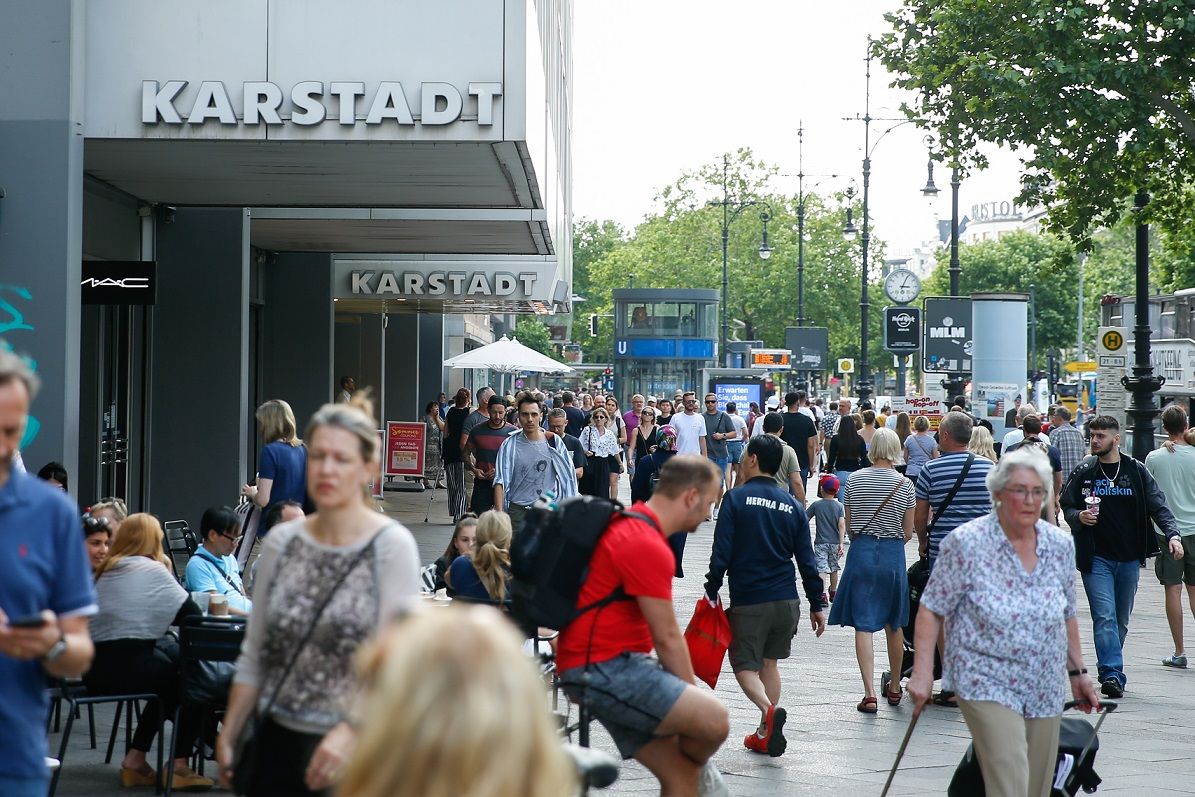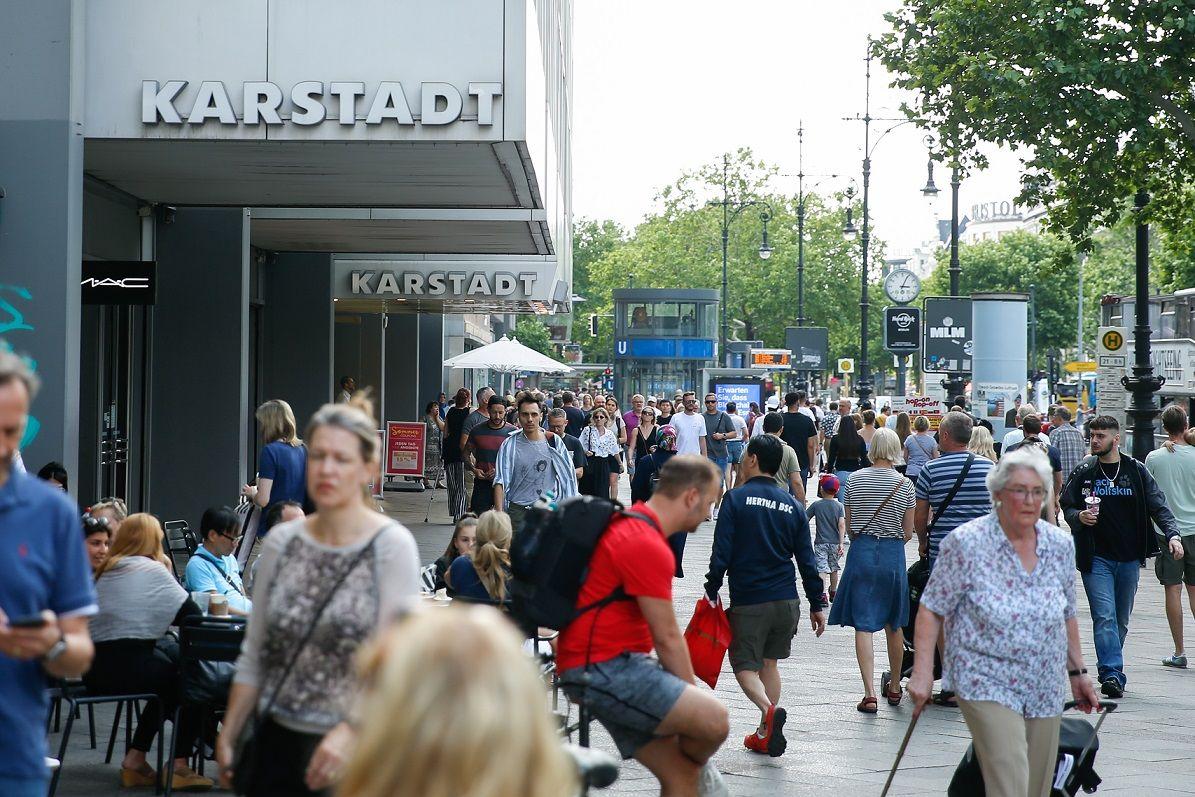
Exterior view of the Karstadt department store on Kurfuerstendamm. (picture alliance/ZB/archive)
Real wages have increased yet again for workers in Germany - good news for the currently flagging economy.
The purchasing power of workers in Germany has increased further in the first quarter of 2019. Adjusted for inflation, people had 1.2 per cent more money in their pocket than the year before, according to data released by the Federal Statistical Office on Monday.
This continues an upward trend in real wages that has endured since the beginning of 2014. Real wages have steadily increased also on a yearly basis, rising by 1.3 per cent in 2018, according to the Wiesbaden-based agency.
Only in 2013 was there a marginally negative result at minus 0.1 per cent. On a quarterly basis, the real wages last declined in the fourth quarter of 2013, also by 0.1 per cent.
In nominal terms, workers earned around 2.5 per cent more on average in the first three months of this year than the same quarter in 2018, including special payments. But more than half of these nominal wages - the gross monthly earnings including special payments - were eaten up by inflation, with consumer prices increasing by nearly 1.4 per cent.
The fact that many workers nevertheless had more money available at the end of the day boosts their purchasing power and can stimulate consumption. Private consumption currently is the most reliable pillar of the German economy. Thanks to the positive conditions in the labour market and increased earnings, people continue to be in a buying mood, according to consumption experts at the Growth from Knowledge (GfK) research institute.

Notice: No person, organization and/or company shall disseminate or broadcast the above article on Xinhua Silk Road website without prior permission by Xinhua Silk Road.




 A single purchase
A single purchase









